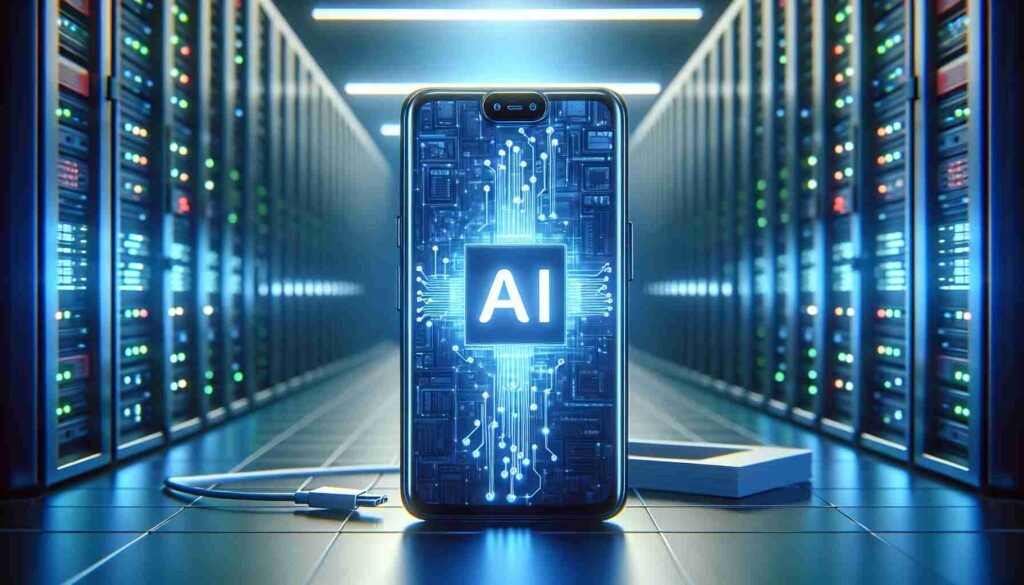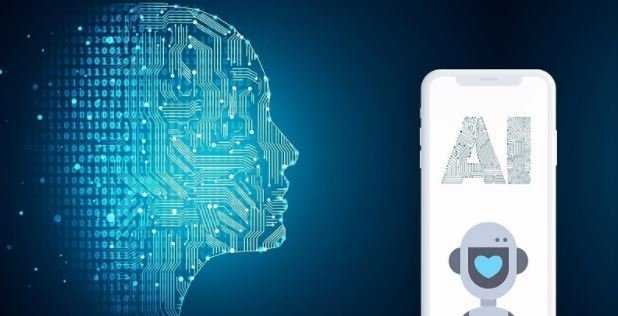AI Integration in Phones: A Deep Dive into the Future of Mobile Technology
In recent years, Artificial Intelligence (AI) has transformed from a niche concept into a core technology embedded across various industries. One of its most revolutionary impacts can be seen in mobile technology, where AI integration in smartphones has not only enhanced user experience but has also reshaped how we interact with our devices. AI Integration in Phones – How Artificial Intelligence is Transforming Smartphone Technology. In this article, we explore the profound ways AI is integrated into phones, its benefits, challenges, and how it is shaping the future of mobile technology. If you’re looking to understand the influence of AI on smartphones, you’ve come to the right place on Get Info For All!

Table of Contents
- Introduction to AI in Mobile Technology
- Key Areas of AI Integration in Smartphones
- Benefits of AI in Phones
- AI in Mobile Photography
- AI in Voice Assistants and Natural Language Processing (NLP)
- AI for Security and Privacy
- AI in Predictive Text and Autocorrect Features
- AI’s Role in Battery Optimization and Performance
- Challenges of AI Integration in Phones
- The Future of AI in Smartphones
- Conclusion
1. Introduction to AI in Mobile Technology
As mobile phones have become an essential part of our lives, companies are investing heavily in making them smarter and more intuitive. AI plays a key role here, helping smartphones perform a variety of tasks that previously required human intervention. AI integration allows smartphones to provide highly personalized experiences, automate routine tasks, and learn user preferences over time. The integration of AI in mobile technology has transformed smartphones into powerful devices that can anticipate user needs, optimize performance, and deliver a richer experience.
2. Key Areas of AI Integration in Smartphones
AI touches virtually every aspect of a modern smartphone. Let’s break down the most notable areas where AI is used in smartphones:
- Mobile Photography – AI enhances the camera’s performance, enabling intelligent features like scene detection and night mode.
- Voice Assistants and NLP – AI-powered virtual assistants like Siri and Google Assistant use NLP to understand and respond to user requests.
- Security and Privacy – AI enables facial recognition, fingerprint analysis, and threat detection.
- Battery and Performance Optimization – AI learns user habits to improve battery life and performance.
- Predictive Text and Autocorrect – AI analyzes typing patterns to suggest words and correct mistakes.
3. Benefits of AI in Phones
AI in smartphones brings numerous benefits, making devices more intuitive and user-friendly. Here are some of the key advantages:
- Enhanced User Experience – AI-driven features create a personalized and seamless experience by predicting user needs.
- Improved Camera Quality – AI helps users capture professional-quality photos without needing specialized skills.
- Better Security – AI provides robust security features like facial recognition and real-time threat detection.
- Increased Battery Life – AI optimizes battery usage by learning how the user interacts with their device.
- Accessibility Improvements – AI enables voice commands, real-time translations, and other accessibility features.
4. AI in Mobile Photography
One of the most visible applications of AI in smartphones is in camera technology. AI algorithms now power nearly all advanced mobile cameras, allowing them to perform real-time enhancements. For instance, AI can detect scenes—like landscapes, people, or food—and adjust settings accordingly. In low-light conditions, AI algorithms improve brightness and clarity, enabling night mode photography that was once impossible on mobile devices.
Moreover, AI-powered editing tools allow users to adjust their photos with minimal effort. Features like portrait mode, bokeh effect, and auto HDR are possible due to AI’s ability to process images intelligently.
Keywords: AI in Mobile Photography, Smartphone Camera AI, Night Mode AI, Portrait Mode
5. AI in Voice Assistants and Natural Language Processing (NLP)
Virtual assistants, including Google Assistant, Siri, and Alexa, are some of the most recognizable uses of AI on mobile phones. These assistants utilize AI-driven NLP to interpret and respond to user commands accurately. They can set reminders, answer questions, play music, and even control smart home devices.
The continuous development of NLP technology has made voice assistants smarter and more conversational, enhancing user engagement and making hands-free operation a reality. AI-powered assistants also personalize responses based on past interactions, making the experience uniquely tailored to each user.
Keywords: AI Voice Assistants, NLP in Smartphones, Google Assistant AI, Siri AI
6. AI for Security and Privacy
Security is a top priority for smartphone users, and AI plays a critical role in ensuring data protection. AI-driven facial recognition technology allows secure, fast, and convenient device unlocking. Additionally, AI is used to detect malware and potential threats in real time, alerting users before any harm can be done.
AI algorithms continuously learn from new threats, improving their ability to protect user data. For example, AI-based biometric systems analyze patterns in facial features, fingerprints, and even voice, ensuring security that is unique to each individual user.
Keywords: AI Security in Phones, Facial Recognition AI, Biometric Security, Privacy AI
7. AI in Predictive Text and Autocorrect Features
Predictive text and autocorrect are essential tools that use AI to understand typing habits, detect errors, and suggest words. Advanced AI algorithms analyze a user’s typing style, providing word suggestions that are highly personalized. Autocorrect features, powered by AI, also adapt over time, becoming more accurate in predicting what the user intends to type.
These features make typing faster and more efficient, catering to both personal and professional use. With AI continuously analyzing text input, smartphones are becoming adept at recognizing slang, abbreviations, and specific user phrases.
Keywords: Predictive Text AI, Autocorrect AI, Typing AI, AI Text Suggestions
8. AI’s Role in Battery Optimization and Performance
Battery optimization is a critical area where AI makes a huge difference. AI algorithms monitor user habits to predict which apps are used frequently and which ones can be closed to conserve power. This “smart management” of resources helps extend battery life without sacrificing performance.
AI also plays a role in device performance. Through machine learning, the system can allocate resources efficiently, ensuring smooth operation and optimal performance. Over time, the phone “learns” to manage tasks more effectively, allowing users to enjoy longer-lasting battery life and reduced charging time.
Keywords: AI Battery Optimization, Performance AI, Smartphone Battery AI, AI Power Management
9. Challenges of AI Integration in Phones
Despite its benefits, AI integration in smartphones poses several challenges:
- Privacy Concerns – AI relies heavily on data, and users are increasingly worried about how their personal data is being used.
- High Resource Demand – AI processes consume more power and memory, which can affect performance.
- Bias in AI Algorithms – AI algorithms sometimes exhibit biases that can impact decision-making.
- Security Vulnerabilities – Although AI enhances security, it also opens up potential vulnerabilities to cyber threats.
Addressing these challenges requires ongoing research and regulation to ensure that AI in smartphones is used ethically and securely.
Keywords: AI Challenges in Phones, AI Privacy Concerns, Smartphone AI Bias, AI Security Issues
10. The Future of AI in Smartphones
The future of AI in mobile technology is promising. AI is expected to become even more advanced, offering personalized experiences tailored to individual users. We can anticipate more sophisticated voice recognition, real-time language translation, and even augmented reality applications. Additionally, AI will enhance the integration of smartphones with IoT devices, making smart homes more accessible and connected.
Innovations in AI-driven healthcare apps, environmental monitoring, and remote diagnostics are also on the horizon. With 5G technology facilitating faster data transmission, the capabilities of AI in smartphones are set to expand further, leading to a more connected and intelligent world.
Keywords: Future of AI in Smartphones, AI Mobile Technology Future, 5G AI Integration, AI Innovations in Phones

11. Conclusion
AI integration in smartphones has significantly improved the functionality, efficiency, and personalization of mobile devices. From intelligent cameras to smart assistants, AI has embedded itself into the very core of mobile technology, enhancing user experience and redefining what smartphones can do. However, this progress also brings challenges, particularly in privacy and security, which need careful attention as the technology continues to evolve.
On Get Info For All, our goal is to keep you informed about the latest trends in technology, and AI in mobile phones is a topic that’s not just current but also transformative. As AI technology advances, smartphones will only become more intelligent and integral to our daily lives, paving the way for a smarter, more connected future. AI Integration in Phones – How Artificial Intelligence is Transforming Smartphone Technology.
Optimized Keywords:
- AI Integration in Phones
- Smartphone AI Technology
- Mobile Phone AI Features
- AI-powered Smartphones
- Voice Assistants AI
- AI in Mobile Photography
- Security and Privacy in AI Smartphones
- Future of AI in Phones
With this detailed look into AI integration in mobile technology, we hope you feel more informed about how AI is shaping the smartphone industry. Stay tuned on Get Info For All for more insights into how technology is evolving around us! AI Integration in Phones – How Artificial Intelligence is Transforming Smartphone Technology.


